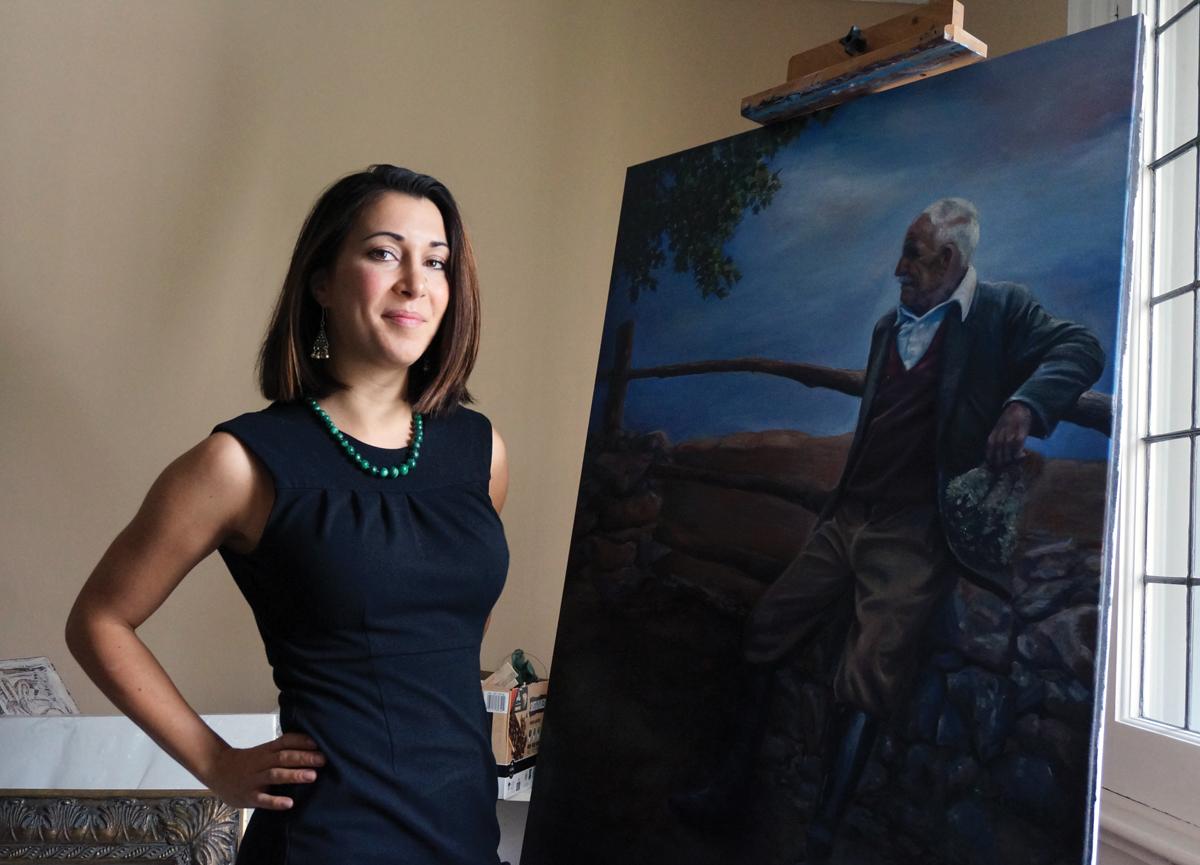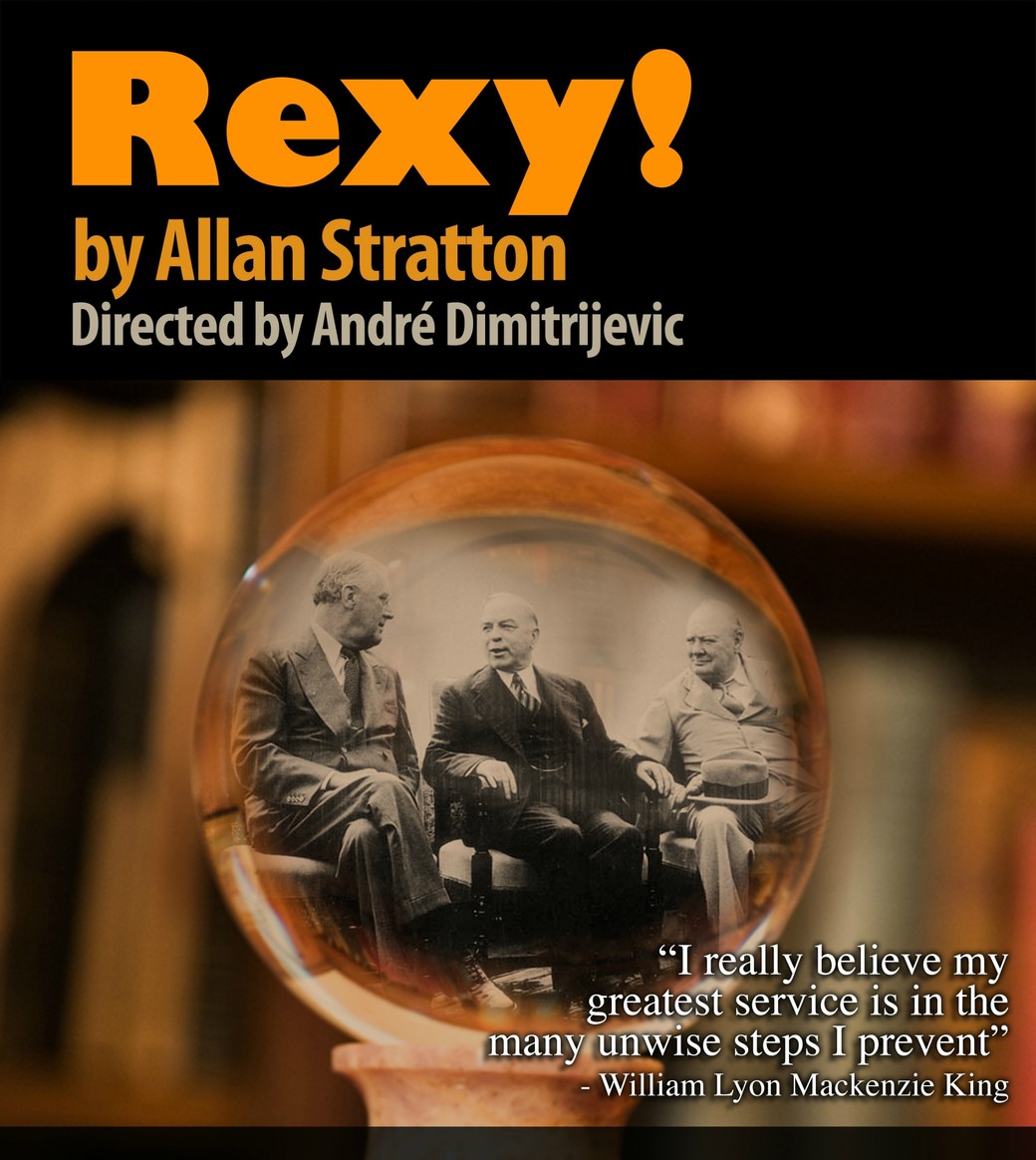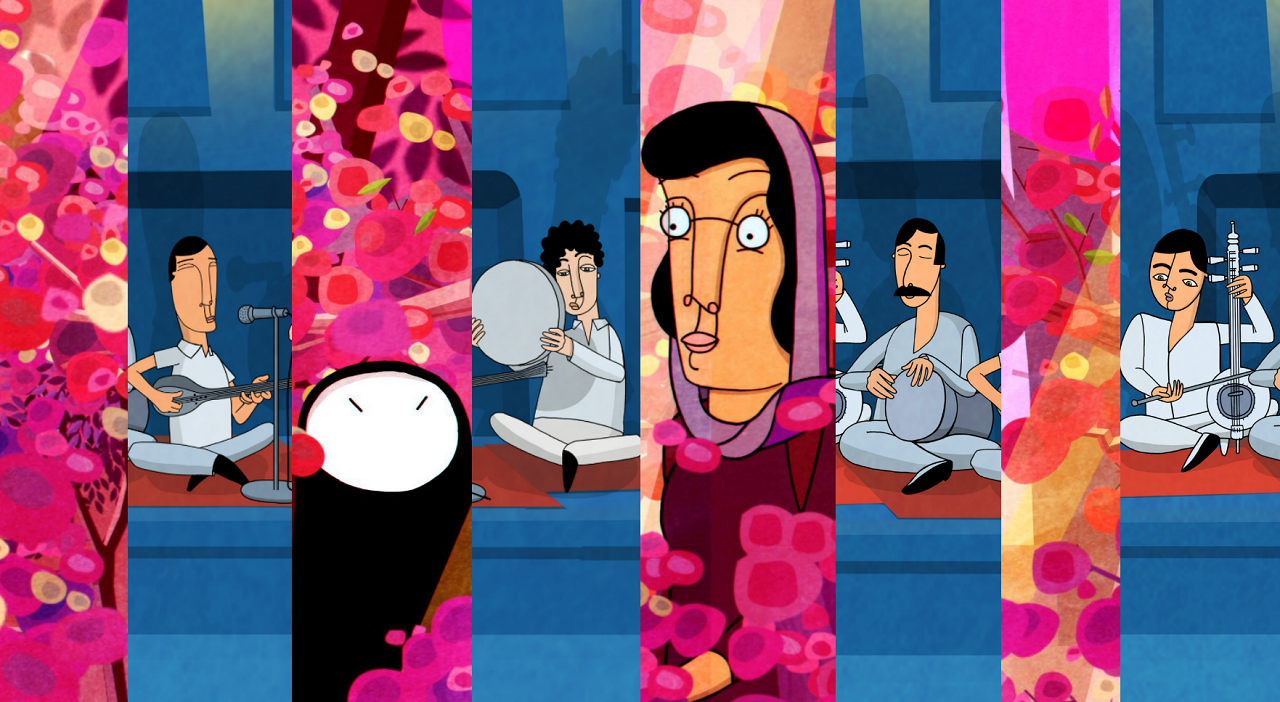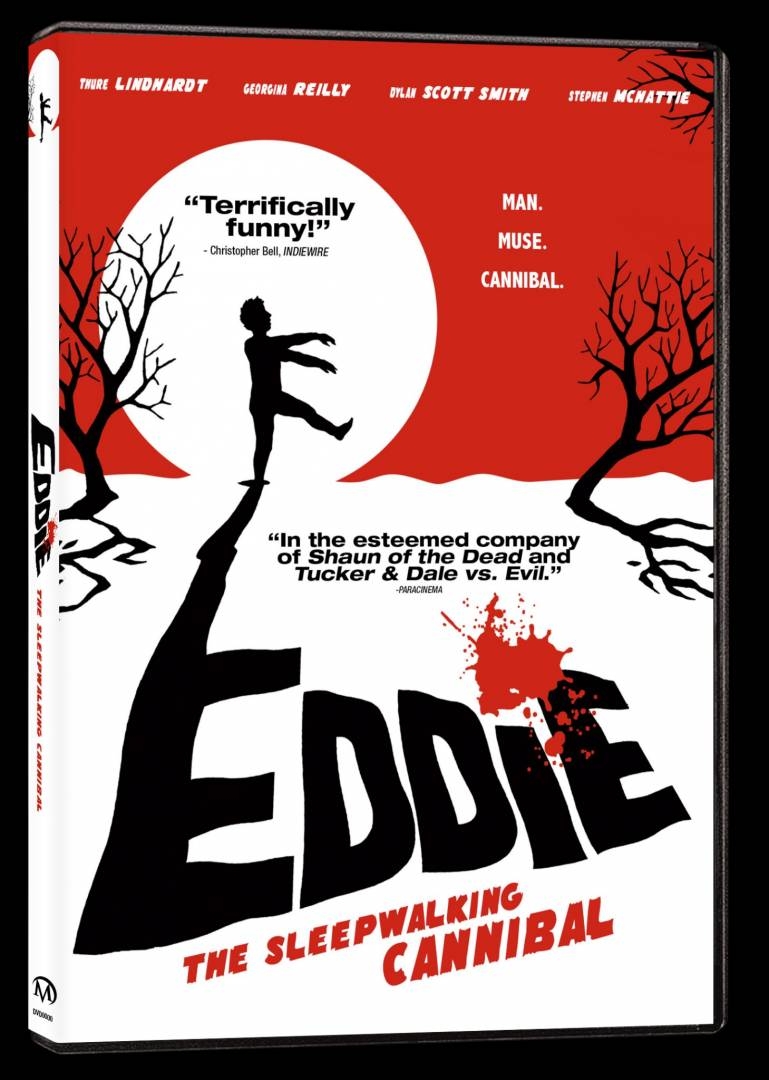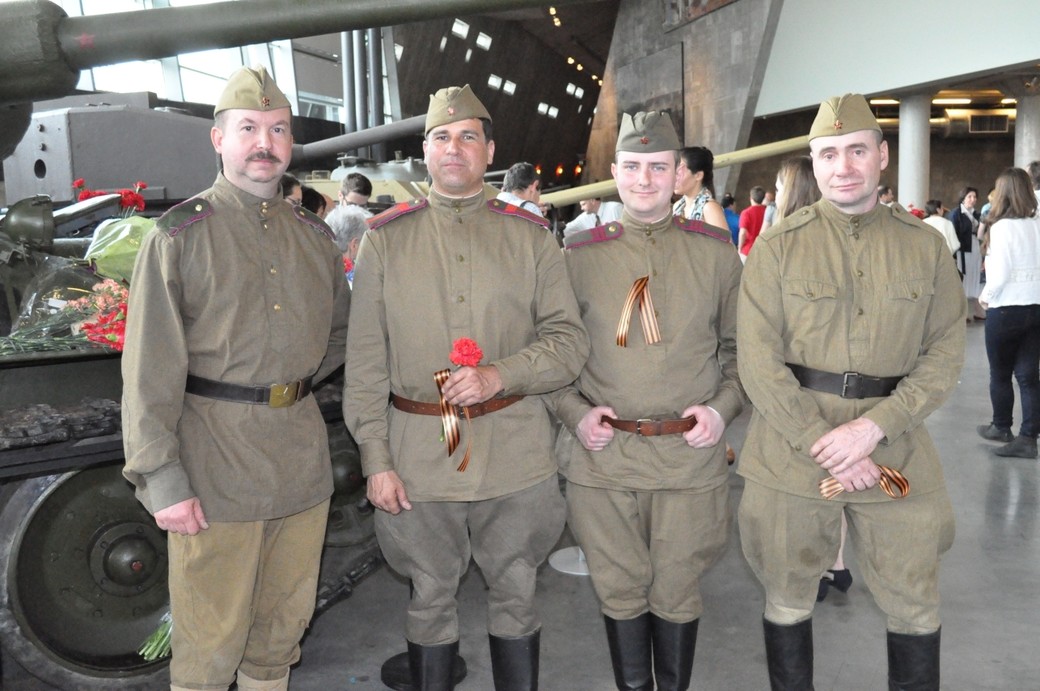
WWII: Nothing is Forgotten, No One is Forgotten
In post-Soviet countries, there is no family left untouched by WWII. Over the four years, from June 22, 1941, until May 9, 1945, the Soviet people lost over 27 million lives in the world fight against fascism.
These 1418 days of confrontation against Nazi Germany became known as the Great Patriotic War, as the war was fought and won with the greatest patriotism. Seven decades later, the Victory Day over Nazi Germany is still celebrated with the same zeal by descendants of the Soviet veterans.
Ottawa is no different
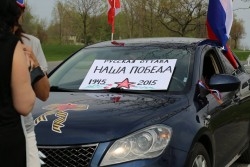
On the morning of May 9, 2015, four dozen cars decorated with WWII victory banners and Canadian and Russian flags mounted on the roofs left the Nepean Yacht Club. The auto-rally marked the 70th anniversary of the victory over Nazi Germany. The route was laid through Ottawa’s main streets, the Russian Embassy, Parliament Hill and ended at the Canadian War Museum.
At the museum, around 200 people gathered for the commemoration ceremony of the war veterans. Soviet descendants gathered around the T-34 tank that stood in a row with other tanks in the main hall. Once a pride of the Soviet weaponry, it is now a relic decorated with portraits of the dead, flowers and candles.
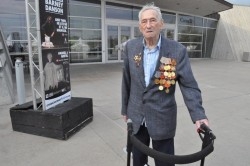
Isaak Davydovich Naivelt arrived at the museum unnoticed, escorted by his grandson and great-grandson. The 96-year-old veteran wore a gray jacket, his chest covered with orders and medals. He sat on his walker, observing the crowd and the ceremony’s ritual.
A minute of silence was observed. War songs were sung. A Russian folk dance group put on a show. People shared stories of their family members—stories of life, death and bravery. The younger generation expressed gratitude and promised never to forget.
Since the end of the war, Naivelt hasn’t missed any opportunity to commemorate the victims of the Great War. They include family members, friends and millions of brave comrades. With years, however, it gets harder for Naivelt to attend the celebratory events. It’s not his spirit, but his body is giving up. The veteran says, “I can’t walk for long, my legs hurt.”
Today, Naivelt is grateful to the Russian-speaking community for organizing celebratory events for him and for the other 15 Red Army veterans living in Ottawa. The Victory Day celebrations included an auto rally, a concert, a memorial ceremony at the Canadian War Museum and a dinner.
On this day, Naivelt has only one wish: “In order not to repeat this…” Naivelt’s voice breaks downs and starts to tremble. Tears fill the eyes.
“But you see… it seems it won’ happen, because now, I see. There is aggravation—to the contrary of peaceful life… It’s worsening now. God permits, it will improve and won’t be repeated…” the veteran breaks down into tears, unable to speak.
Marina Stanislavovna Martyshenko is a child of war
She was only 9 years old, when Nazi Germany occupied her home city Minsk, Belarus. There are no words to convey the four frightening years of the war. “It was fear, hunger and continuous murdering, shooting and burning of people,” Martyshenko says.
After the German occupation in 1941, Belarus turned into a big smokehouse. The Nazis burned alive the “undeserving to live races.” Among them were: sick, disabled, Jews and other minorities.
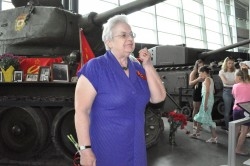
In 1943, the Nazis burned Hatyn, a village near Minsk. The village was burned to the ground together with its 156 dwellers. Fascists didn’t stop there. Over the years of occupation, at least 5000 Hatyns blazed across the Eastern European country. It’s estimated Nazis killed over two million people, almost a quarter of Belarus’ population.
Unlike many children, a “miracle” and grandmother saved Martyshenko’s life. She kissed her parents goodbye for the last time. The girl escaped to the outskirts of Minsk, where her grandmother had a small garden and a cow.
“She hid the cow in the ditch, so nobody could find it and would take it away,” she remembers with a laugh. “It was such life. We survived.”
After the war, Martyshenko became a doctor. She dedicated four decades of her life treating the sick, making sure everyone had a chance to live. The human life is more valuable than anything else, the veteran says, and it should be treasured.
“Never forget: with what price, by what blood this Great War was won. This is a great victory. It should remain to our descendants, grandchildren, great-grandchildren—to all,” Martyshenko says.
“Can you imagine how many young soldiers died without seeing any life on earth? We must remember it and know it.”
Children were at the museum too
Many are still too young to understand the big responsibility entrusted on their shoulders.
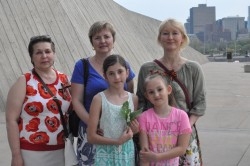
Eight-year-old Darya Erdem says she came to celebrate the event. The girl shyly says, “It’s when Russia won the Second World War.” When asked whether she has a veteran in the family, the girl’s mother, Anastassia Youdovskaya, helps her out.
Youdovskaya’s grand-aunt was captured by the Nazi troops, and taken to Germany to labour at one of the manufacturing plants. The grand-aunt survived forced labour at the factory, while Youdovskaya’s grandmother, with four children, lived through the Nazi occupation, fear and starvation.
“We remember all of this,” Youdovskaya says. “We are very grateful for people who have died in this war—defending us and our freedom.”
For eleven-year-old Sofia Bayindir, it is her first Victory Day celebration. The girl says she liked to sing “Katyusha” with everybody. The Russian war song inspired people to defend their land from the enemies during the war. Sofia speaks about her great grandfather with pride: “He helped prisoners to escape. Germans killed him. He was hung in front of people.”
Canada’s presence
The Eastern Canada Red Army Reenactment Group also attended the event. Dressed as Soviet soldiers, they came to acknowledge the Soviet contribution and sacrifices over WWII.
“For us, it’s important to remember that 80 per cent of German war effort was absorbed by the Russian people. We are here to thank the Russians of the Second World War. We were all allies during the war,” says Louis Mercier, leader of the group.
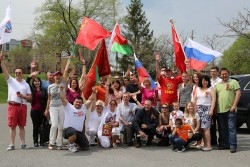
Unfortunately, Mercier says many Canadians know little about the history of the Eastern front during WWII. Not many have attended the Victory of Europe Day (VE Day) parade on May 8, 2015, either. Mercier says it’s because many Canadians don’t know how important the VE Day was for Canadians, Americans, Russians and British.
“Many Canadians don’t know about it. For us, the ceremony for veterans is the 11th of November. The 11th of November symbolizes the end of the Fist World War,” says Mercier.
“As people get informed, however, they see the real picture of how inhuman, merciless the war [WWII] was. They realize: Okay, there is another part of history, and we have to remember it. It’s very important.”
Unfortunately, WWII history is rich. In the bloodiest and the deadliest war in human history; close to 60 million people lost their lives. Almost half of casualties were from the Soviet side.
The war had no mercy on Canadians either: 45 thousand died and 54 thousand were injured. Everyone had a story and a lesson, which they wanted to pass to future generations. The stories left untold, unwritten and lessons never learned. It’s time to discover them, to make sure nothing is forgotten, and no one is forgotten.

